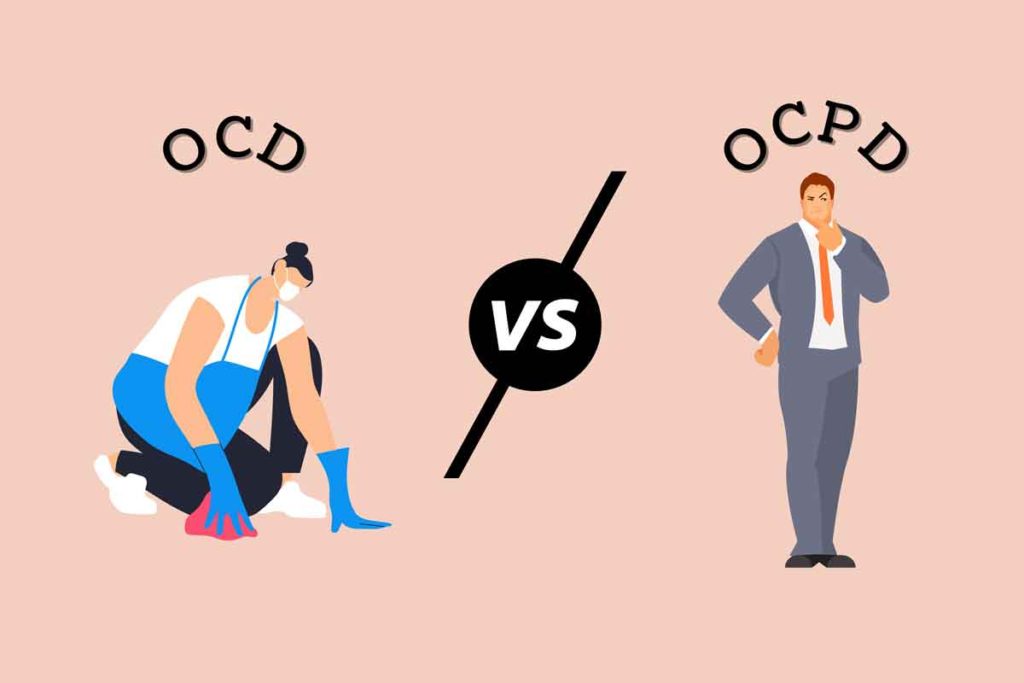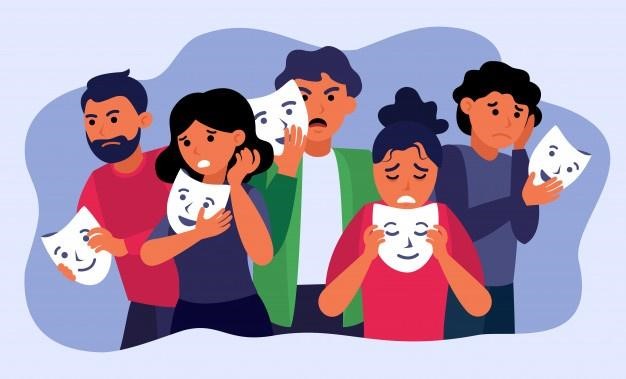A Quick Guide
Obsessive-Compulsive Personality Disorder (OCPD) is characterized by an excessive need for control, perfectionism, and inflexibility, which can hinder task completion. The causes of OCPD are not fully understood, but family history and biological factors may play a role. Symptoms of OCPD include a strong desire for organization, rigid adherence to rules and standards, hoarding tendencies, and difficulty sharing responsibilities. It is more common in men and can coexist with other mental health disorders. Treatment for OCPD often involves psychotherapy, such as cognitive-behavioral therapy (CBT) and psychodynamic therapy, while medication may be prescribed for associated conditions like depression. Relaxation techniques and self-care practices can also help manage OCPD symptoms.
What is Obsessive-Compulsive Personality Disorder?
A pervasive obsession with discipline, perfectionism, and control (with no tolerance for flexibility) that eventually slows down or inhibits task completion is a characteristic of obsessive-compulsive personality disorder OCPD. It is believed that when compulsivity, a limited emotional range, and perfectionism run in the family, it can contribute to OCPD. Its treatment can include both therapy and medication depending on the severity of the case.
Symptoms
OCPD is diagnosed when symptoms interfere with your capacity to function properly and interact with others. The symptoms of Obsessive-Compulsive Personality Disorder include the following:
- A desperate need for organization
- A fixation with making lists
- A pressing urgency to be on time
- An attitude of righteousness towards how things ought to be done
- An unwillingness to share or assign work out of concern that it won’t be done properly
- Becoming quite cautious with money
- Excessive work commitment at the cost of social or family ties
- Hoarding old or worthless objects
- Significant focus on detail
- Strict adherence to laws and regulations
- Strict observance of moral and ethical standards
- The inability to complete duties due to perfectionism to the point of rigid, stiff, or inflexible manners
Watch [Obsessive Compulsive Personality Disorder in a Minute]
Causes
Even if there are certain theories that explain many possibilities, we still don’t know what causes OCPD. According to one theory about attachment types, it may manifest in children who had overly protective parents or inadequate carers. Those who didn’t grow up with the capacity to feel emotions and empathize with others. Or those who were unable to develop strong bonds with their parents or other caretakers. Being related to someone who has OCPD may increase your risk of developing the disorder, suggesting that it could also have a biological basis.
Who is more prone to OCPD?
An obsessive-compulsive personality disorder is thought to affect between 2.1 and 7.9 percent of the general population. It is more prevalent in men. Furthermore, people who already have a mental health diagnosis are more prone to developing this disorder. It can also develop when there are additional disorders, including the following:
- Eating disorders
- Depression
- Parkinson’s disease
More research is required to explain the part that OCPD serves in these diagnoses. Moreover, severe OCD sufferers are also much more inclined to get an OCPD diagnosis.
OCPD vs OCD
Oftentimes, OCPD is confused with OCD. Now while they are separate disorders. They do have a lot of symptoms that are common. So here is a way to differentiate them

| OCPD | OCD |
| It is a personality disorder | It is from a cluster of Obsessive-compulsive and related disorders |
| They have a belief in the motivation behind actions/thoughts | There is distress due to thoughts and actions |
| Their behaviors are consistent | There are changes in their behavior over time |
| Their behaviors are not influenced by compulsions or obsessions | Actual compulsions or obsessions are experienced |
Obsessions and or Compulsions
OCD is defined by actual obsessions (an unjustified concept or idea that keeps repeating) and/or compulsions (an irrational behavior performed repeatedly). These actions, which can take place simultaneously or separately, impair a person’s life and their ability to operate.
However, when it comes to OCPD, the personality features are not controlled by unreasonable, persistent ideas or behaviors. People with OCPD frequently engage in rigid behaviors that may be focused on adhering to certain routines, but they lack the overwhelming compulsions and intrusive thoughts that characterize OCD.
How do they feel about these obsessive thoughts or behaviors?
Even if they’re unable to regulate their behaviors or thoughts, people with OCD frequently feel upset by them. However, people with OCPD frequently think that their activities are directed toward a specific goal. As a result, people with OCPD could also put off getting professional assistance. In some circumstances, the characteristics of OCPD can even lead to success; for instance, someone who is too committed to their profession and meticulous in their attention to detail may benefit at work regardless of whether they are having problems in other parts of their life.
The Recurrence of Symptoms
OCD symptoms frequently change along with the level of underlying anxiety. People with OCD use their actions as a coping mechanism for their fears, anxieties, and uncertainties. This implies that when people are less anxious, their symptoms can be less noticeable. Since OCPD is a personality disorder characterized by rigidity, the behaviors have a tendency to persist and remain constant throughout time. Moreover, these symptoms are prevalent in practically every aspect of a person’s life and do not change in response to anxiety levels.
Learn more about OCD & OCPD: What’s The Difference?
Treatment
Although more research is required in this area, psychotherapy is typically the first step in treatment programs for personality disorders, with medication serving as the second step.
Psychotherapy
Some types of therapy for OCPD include the following:
Cognitive Behaviour Therapy CBT
In mental health counseling, CBT is a popular approach. You attend scheduled sessions of CBT with a professional therapist. You and your therapist will work through any anxiety, tension, or depression during these scheduled sessions. Your therapist will urge you to place greater value on leisure activities, your family, and other personal relationships rather than your job.
Learn more about Treatment Options & Self Help For OCPD: How Effective Is CBT?
Psychodynamic Therapy
Psychodynamic therapy aims to help you comprehend your unconscious and conscious thoughts and emotions. This can help you to make better decisions in your life.
Medication
If you have other medical conditions, such as depression, your doctor may advise medication to help manage some of your OCPD symptoms. This may involve taking antidepressants or anti-anxiety medication. To reduce some of the anxiety associated with the obsessive-compulsive cycle, your doctor may prescribe you a Selective Serotonin Reuptake Inhibitor (SSRI). If you have been prescribed with an SSRI then support groups and ongoing therapy with a psychiatrist may also be helpful for you. For OCPD, long-term medication use is typically not advised.
Relaxation Techniques
Specific breathing techniques are used in relaxation training. They can reduce your sense of tension and urgency. These signs of OCPD are typical. The recommended relaxing techniques include yoga, pilates, and tai chi.
Some Coping Tips
You can acquire certain coping mechanisms in addition to receiving therapy for OCPD. These might consist of the following:
Self-education: Gaining knowledge about your health can also be a liberating experience. In order to change your behavior, you may find it useful to recognize when an OCPD symptom is to blame.
Stress Management: Make an effort to minimize your stress levels so that you will be prepared to handle anything that comes your way.
Self-care: If you have OCPD, it might be simple to put your needs last when concentrating on a project. Consider incorporating self-care into your daily routine.
Mindfulness and meditation: Practicing mindfulness and meditation can help you identify situations where perfectionism is generating anxiety and so you can take action to reduce those circumstances. Being observant when meditating is a great way to reduce stress.
We hope you found this article useful in understanding a brief overview of Obsessive-Compulsive Personality Disorder OCPD.



 Gestalt Therapy: All you need to know about it
Gestalt Therapy: All you need to know about it  Trauma and Stressor-Related Disorders: Causes, Symptoms, & Coping Strategies
Trauma and Stressor-Related Disorders: Causes, Symptoms, & Coping Strategies  Teletherapy: The Benefits, Types, Challenges, and Uses
Teletherapy: The Benefits, Types, Challenges, and Uses  Signs of Depression in Men: Recognizing the Symptoms
Signs of Depression in Men: Recognizing the Symptoms  Dissociative Fugue: Symptoms, Causes, Treatment & More
Dissociative Fugue: Symptoms, Causes, Treatment & More  Interpersonal therapy IPT: A brief overview
Interpersonal therapy IPT: A brief overview